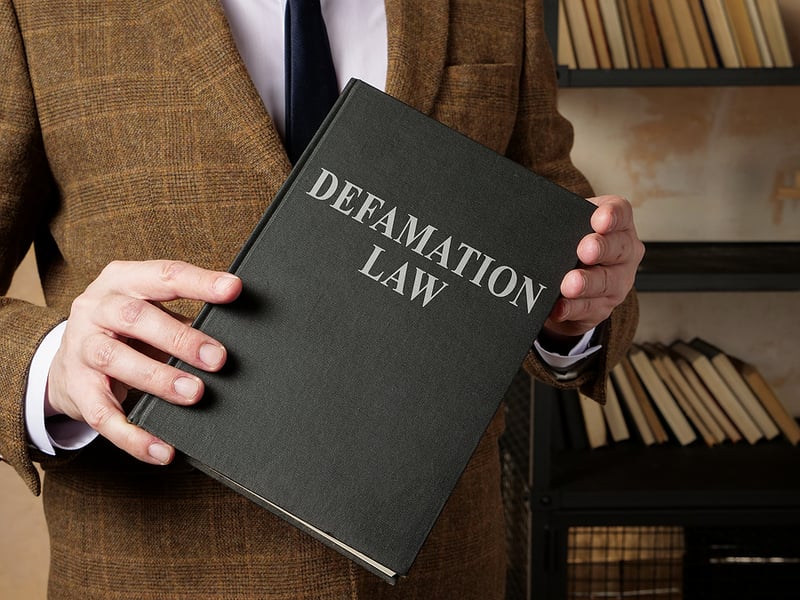
A common misconception is that all speech and communication are protected, but it’s important to realize that there can be financial repercussions for companies that make false claims heedlessly. Libel or slander lawsuits often arise due to a business owner lacking the appropriate protections or being misinformed about what these definitions entail. Read on to learn the difference between libel and slander and how being proactive can keep your business protected.
Libel vs. Slander: Knowing the Difference
Libel and slander are often misconstrued as being the same thing, but in order to protect your business, you need a clear understanding of both to avoid potential liability risks.
What Is Libel?
Libel is a harmful statement or lie that is relayed by written or visual means, such as through advertisements, social media, texting, or videos. If a message you post online or in marketing materials is false, you risk facing a libel lawsuit. Since most businesses nowadays, especially small businesses, use social media marketing to some extent, this is exceedingly relevant.
What Is Slander?
Slander is the declaration of misrepresentations or false claims that defame or damage another’s reputation. In simple terms, it can be defined as a spoken lie or damaging comment that is relayed to someone about a third party. For example, if you share a rumor about a rival business, which in turn results in them losing out on a potential contract, that can be interpreted as slander. Namely, the difference between libel and slander is how the message is relayed: verbal vs. visual.
How Libel and Slander Can Hurt Your Business
 Libel and slander laws apply to a business owner’s actions and anything said or written by an employee. While someone may be stating an opinion, it isn’t protected under free speech provisions if it is untrue and damages the reputation or financial standing of a person or business. However, if someone pursues a costly lawsuit against your company for perceived libel or slander, they need to prove that your statements about them were indeed false. They also need to show that they have suffered a loss as a result of the comments, financially or reputationally.
Libel and slander laws apply to a business owner’s actions and anything said or written by an employee. While someone may be stating an opinion, it isn’t protected under free speech provisions if it is untrue and damages the reputation or financial standing of a person or business. However, if someone pursues a costly lawsuit against your company for perceived libel or slander, they need to prove that your statements about them were indeed false. They also need to show that they have suffered a loss as a result of the comments, financially or reputationally.
How Can You Protect Your Business?
A slander or libel lawsuit is costly to fight, but it’s also preventable. As a business owner, you can take the following steps to avoid liability in a libel or slander case:
- Educate: Counsel your staff about what types of oral or written comments can be considered disparaging and potentially harm your company.
- Update Contracts: Include clauses within your employee agreements that limit your liability, and consider creating a social media policy for employees.
- Quickly Fix Errors: If you mistakenly make an incorrect statement, prioritize righting your wrong as swiftly as possible to avoid escalating the situation.
However, the best way to safeguard your business from a potential lawsuit is by investing in a general liability insurance policy. Under this type of policy, you and your business will receive coverage for legal fees associated with libel and slander. Don't delay protecting your business' finances or reputation any longer. Get in touch with a World Insurance agent today to be outfitted with the most comprehensive business insurance for your needs.
This article is not intended to be exhaustive, nor should any discussion or opinions be construed as legal advice. Readers should contact legal counsel or an insurance professional for appropriate advice.
Get Started with a Free consultation
Creating a custom insurance or benefits package is critical for companies of all sizes.